I am doing this:
## Example data
library(poLCA)
data(gss82)
f <- cbind(PURPOSE,ACCURACY,UNDERSTA,COOPERAT)~1
mlmat <- matrix(NA,nrow=500,ncol=4)
## Do repreat 500 times LCA for best llik
for (i in 1:500) {
gss.lc <- poLCA(f,gss82,nclass=3,maxiter=3000,tol=1e-7)
mlmat[i,1] <- gss.lc$llik
o <- order(gss.lc$probs$UNDERSTA[,1],decreasing=T)
mlmat[i,-1] <- gss.lc$P[o]
}
It's come from poLCA paper (http://www.sscnet.ucla.edu/polisci/faculty/lewis/pdf/poLCA-JSS-final.pdf p14. table1)
I use loop to do 500 times just show one objective on data panel of R.
I want know how to just save the maximumlog-likelihood is -2754.545 output, because it's global of maximum log-likelihood.
